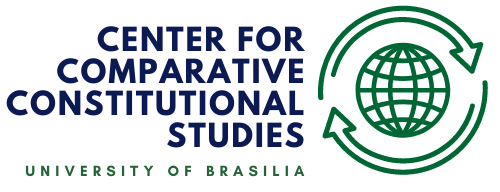Program purpose
The course promotes comparative and interdisciplinary perspectives to deepen the understanding the development of and challenges to the rule of law and welfare states globally. The course provides course participants with conceptual knowledge and analytical skills to deepen their understanding of the legal, political and social conditions that shape (in)equal access to rights and welfare across empirical contexts. The course brings together course participants from different countries and across law and social science disciplines to enable cross-country interaction, exchanges and understanding.
Who is eligible?
The course is open to current students of MA programs in Law, Political Science, Social Work, Public Administration (or other similar field) at University of Brasilia, as well as graduate students from University of Brasilia. Demonstrated proficiency in written and oral English is a requirement.
Brief course description
Across the world, welfare states are emerging due to strong social rights movements and effective social policies, yet in most of these societies, inequal access to fundamental rights and welfare policies continues to be prevalent. Some vulnerable groups do not have access to social protection benefits; some cannot dispute administrative decisions in a court of law; and low-income groups often carry the largest burden of financing welfare in largely regressive tax systems.
In this course, participants will compare the development and characteristics of the rule of law and welfare states globally and analyse the conditions that shape (in)equal access to rights and welfare. This is done together with participants from different countries and various disciplinary backgrounds such as law, political science, public administration, sociology and social work.
The course comprises three modules: a main module, a thematic module and a project module which collectively provide course participants with knowledge, skills and competences to deepen their understanding of the rule of law and its intersection with welfare state development applying comparative and interdisciplinary perspectives.
Read more about the course here.
Time and location
The course is kicked off with a mandatory onsite induction workshop on 22-23 March .
The remainder of course takes place online. Please be attentive to the dates for the online live seminars
Cost
The course is free of charge.
Duration
The course lasts 15 weeks (including induction). See course tentative course schedule below.
|
|||||||||||||||||||||||||||||||||||||||||||||||||||||||||
Programme language
English
Teachers
Convenors of onsite and online seminars
- Marianne S. Ulriksen, JUST SOCIETY, University of Southern Denmark
- Vincenzo Pietrogiovanni, JUST SOCIETY, University of Southern Denmark
- Rasmus Schjødt, JUST SOCIETY, University of Southern Denmark
- Siff Lund Kjærgaard, JUST SOCIETY, University of Southern Denmark
Read more about the JUST SOCIETY team here.
The course includes short video lectures by an international group of professors and scholars of comparative political science, welfare studies, social law and policy as well as constitutional law and theory.
How to apply
All students are required to apply to the course via the our registration system. All applicants will be review to ensure qualification.
BERORE APPLYING, please make sure you can attend the MANDATORY induction workshop on the 22-23 March.
Furthermore, the expected weekly workload is 8 hours and the course is graded accordingly. You should ensure that you are able to devout that amount of time to the course before you apply.
Applications is closed. The course is running.
Questions
If you have any questions, please do not hesitate to contact us at justsociety@sam.sdu.dk
